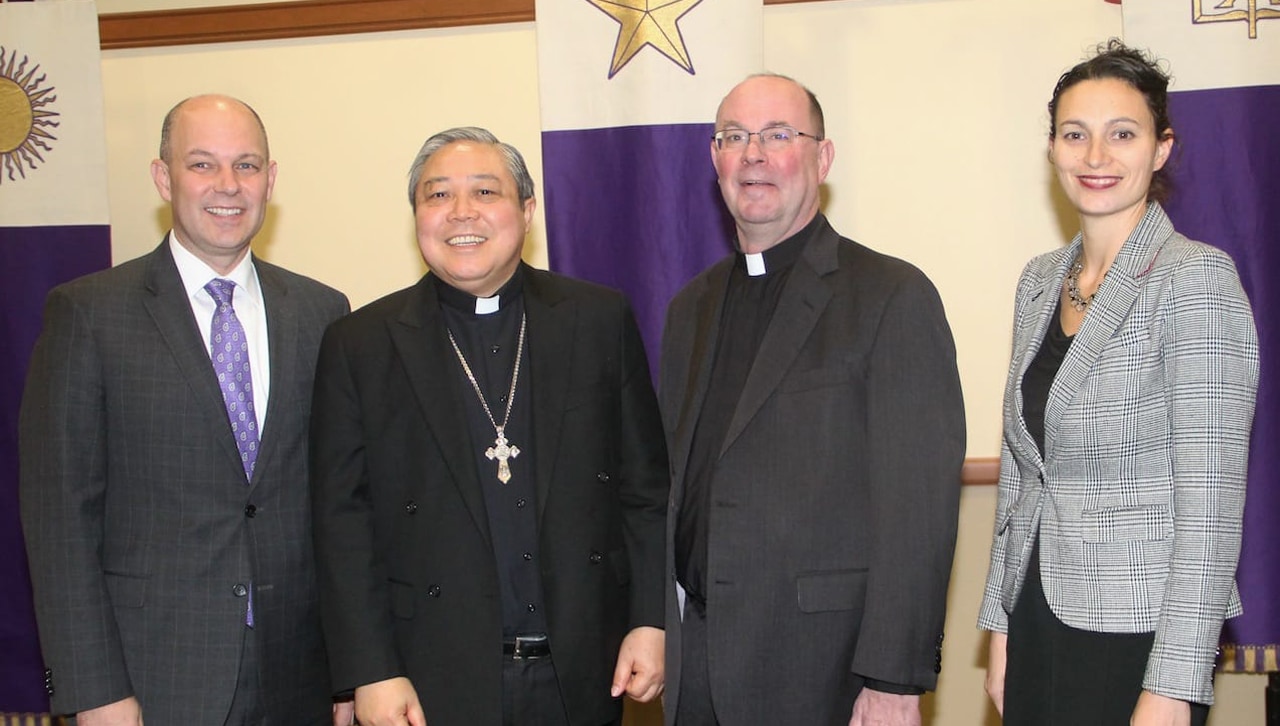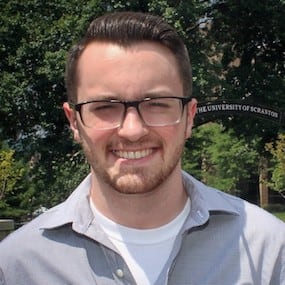A New Compact on Migration

Most Reverend Bernardito C. Auza, Apostolic Nuncio and Permanent Observer of the Holy See to the United Nations, discussed “Global Migration: Shared Responsibility and Solidarity” at The University of Scranton.
“On the 30th of July this year, delegations to the United Nations conference on migration informally adopted what is now called the Global Compact for Safe, Orderly and Regular Migration,” said Archbishop Auza, who has served at the United Nations since 2014.
The Global Compact for Safe, Orderly and Regular Migration (GCM) seeks to improve governance and attempts to address the challenges associated with migration today. In 2017, 250 million people migrated to different countries and 68.5 million of the people migrating were forced from their homes, according to Archbishop Auza.
“Refugees in 2017 grew to almost 27 million from around 11 million in 2010, an increase of more than 60 percent in only seven years,” Archbishop Auza said. “These are just some of the figures that tell us why the international community has come together and decided to come up with a compact.”
The GCM acts as a framework for dealing with massive movements of migrating people around the world and seeks to lower death rates when migrating.
“In September 2018 – that is just last month – one fifth – that’s 20 percent – of the migrants and refugees who tried to cross the Mediterranean from Libya to Italy or Greece perished, they drowned or simply disappeared,” Archbishop Auza said.
In addressing the question of why people leave their homes, Archbishop Auza said there are “many factors that drive migration.” He continued saying “you can generally divide them into two: the so called push factors that are the factors that drive people to leave their homelands to go somewhere else; and the so called pull factor, those are the factors that make people move to a particular country.”
“The number one push factor now is war and conflict,” Archbishop Auza said. “The pull factors that attract people to go somewhere else like the search for better opportunities and changes in labor markets.”
The top three nationalities who crossed the Mediterranean from January 2015 to March 2016 were Syrians at 47 percent, Afghans at 21 percent and Iraqis at nine percent, according to Archbishop Auza.
“What is the common denominator of these three countries? War and conflict,” Archbishop Auza said.
The General Assembly for the UN will hold an intergovernmental conference on international migration in December of this year, with the idea of adopting the GCM. The GCM has several principles that seek to help ease migration, an example of a principle is the “recognition that migration is a natural positive phenomenon,” according to Archbishop Auza.
“The global compact is now the international framework for global and shared responsibility toward migrants,” Archbishop Auza said. “This Global Compact on Migration is the first ever – there has never been a global compact or international document on migration. This is historic.”
The lecture ended in a panel discussion with members from the University and closing remarks from Rev. Scott R. Pilarz, S.J., president of the University.







